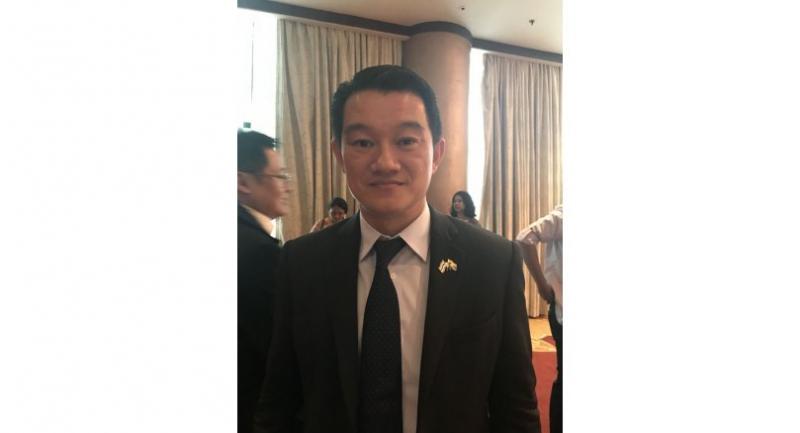Operators unfazed as Myanmar slows

YOUNG entrepreneurs in Myanmar remain upbeat on the country’s economic outlook despite weakening of the kyat, high inflation and delay to reform.
“It is not good if you look at the exchange rate. The kyat is retreating against the US dollar and Thai baht, We are in a unstable period,” May Mon Thu, managing director and founder of Mamper Co, a marketing firm in Yangon, told The Nation.
She was referring to volatility in the financial market, sending the kyat down sharply since the beginning of this month.
The Myanmar currency is moving around 1,500 kyats per US dollar from 1,440 earlier this month. The high inflation rate of 6 per cent have also dampened consumer's spending power.
The kyat has been negatively affected by the US rate hike, the US-China trade war and fall of the Turkish currency, leading to capital outlfows from emerging and frontier markets.
May Mon Thu expects growth of her business to pick up again next year after the current slowdown in line with the Myanmar economy.
New graduates with skills in information technology could find high-paying jobs in the country. However, many have yet to learn how to use Microsoft products or making a presentation with computer applications, she said.
As most small and start-up businesses in Myanmar use Facebook as a tool to sell their products, her company helps with their branding, marketing and promotion.
“It is a blue ocean, there are business opportunities in many sectors,” said Bruce Mo Ye Kyaw, director of Bumrungrad Clinic Yangon who has been doing business with Bangkok-based Bamrungrad Hospital for nearly 13 years.
He expects his medical business to grow 5-6 per cent in total revenue this year, regardless of the country's slower economic expansion,
The Asian Development Bank forecasted a 6.8 per cent growth in Myanmar's gross domestic product this year, down from 7 per cent in 2015.
Akirakorn I-kitisiri, country head of MONO Group in Myanmar, said he expected media content such as on-line games on mobile phone application, to take off in the next few years as the number of smartphone users increases. MONO is a Thailand-based digital TV channel with a presence in the country.
Chayavat Chareonrai, general manager of United Distribution Solution, a provider of information technological services in Myanmar, said most consumers in Myanmar, unlike in Thailand, simply jump to a smartphone without having owned a personal computer.
He said the imminent arrival of smart IT network and the new mobile bandwidth will strengthen mobile platforms in Myanmar, adding that many people in Myanmar have no bank account depsite owning a SIM card.
The country needs to boost its electricity supplies and IT infrastructure,among other related sectors, Chayavat said.
Nattawin Phongsphetrarat, vice president of the Thai Business Association of Myanmar, suggested that late comers should not rush in without finding a right partner to build a strong network in the local market.
Walikar Apayasiri, counsellor at the Thai Embassy’s Office of Commercial Affairs in Yangon, said modern trade outlets have started to enter the local economy, such as the recent openings of departments in Yangon, a business hub and the old capital of Myanmar.
The government has enforced a new company law, allowing foreign investors to invest in wholesale and retail trade.
Contrary to ageing Thailand, Myanmar is a young society where people between 15 to 64-year-old make up 67 per cent of its population of 54 million. The size of its labour force is estimated at 34.5 million with the largest chunk of 14.35 million employed in the service sector, followed by 12.45 million in agricultures and 7.7 million in industries.
Adul Chotinisakorn, director general of Thailand’s Department of Foreign Trade, said Myanmar has a bright future due to its large demographic of young people.
Pakainay Leng-ee, minister counsellor at Thai Embassy’s Office of Commercial Affairs, said the planned economic reform under the Aung San Suu Kyi government is expected to take shape in the near future as the government has been revising many investment laws and regulations.
But the accusations of human rights violation regarding the government's handling of minority issues may result in a slowdown of foreign direct investment.
Meanwhile, Thai ambassador to Myanmar Jukr Boon-Long, said the International Monetary Fund's latest forecast of 6.9 per cent in the country's GDP growth this year may have fallen short of the earlier expectation of double digit growth, but the potential is there due to its large number of young people and the numerous investment opportunities in several sectors, including infrastructure, energy, electricity, fishery, real estate, tourism, farming and livestock.





